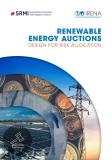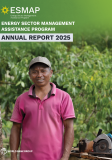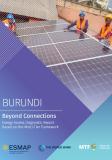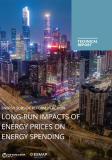Publications
The report surveys the challenges facing Bangladesh's power sector today and makes recommendations for consideration by national policy makers. Its starting point is the Government's goal of universal access to electricity by 2021, when Bangladesh completes 50 years of independence. Bangladesh can justly be proud of its progress in providing power to its people over the past decade. Generation capacity has steadily grown from 5.5 GW in 2009 to more than 13 GW in 2017—an increase of 140 percent. Starting from levels of access to electricity below 50 percent, today access is around 80 percent, with a globally recognized off-grid rural Solar Home System (SHS) program contributing almost 14 percent of that total. Sector performance is better than that of larger countries in the South Asia Region on key dimensions—distribution and transmission losses (together around 14 percent) and collection efficiency (above 90 percent). Bangladesh was an early mover in initiating private power generation in the late 1990s. The independent power producer (IPP) contracts awarded at that time through a transparent competitive process brought it what remains even today some of the lowest cost power in South Asia. Power imports from India commenced in 2013 and are set to grow—they are a critical element of the Government's strategy to supplement domestic generation with other sources of supply. The country has also demonstrated impressive mobilization and institutional capacity in selected agencies, which it can leverage in its quest to rapidly achieve middle-income status.
Pargal, Sheoli. 2017. Lighting the Way : Achievements, Opportunities, and Challenges in Bangladesh's Power Sector (English). Washington, D.C. : World Bank Group. http://documents.worldbank.org/curated/en/936461540318296226/Lighting-the-Way-Achievements-Opportunities-and-Challenges-in-Bangladeshs-Power-Sector



